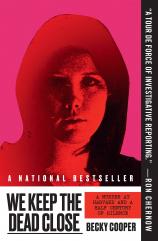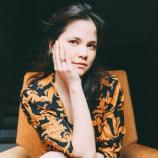Reading Group Guide
Discussion Questions
We Keep the Dead Close: A Murder at Harvard and a Half Century of Silence

1. Not all murders become myths. Why do you think Jane’s did?
2. This book is as much about investigating a crime as it is about who has the right to reconstruct the past and call it history. How does Becky navigate this question, and what parallels are there with the work of anthropologists and archaeologists?
3. How were the reverberations of the larger world felt at Harvard and Radcliffe in the ’60s? In what ways have the institutions changed --- or not --- since Jane’s time?
4. The most consistent thread in the book is Becky’s obsession with Jane. In what ways do Becky’s boundaries start to blur with Jane’s? Is this a necessary part of writing a biography or a sign of getting too close to one’s subject? Or is it something else entirely?
5. Silence is a recurring theme throughout the book --- from Jane’s refusal to scream to the police blackout. As Professor Kimberly Theidon asks, how do you interpret silence?
6. How should the investigative work of authorities --- as well as the privacy of victims and their families --- be balanced against the public’s right to know?
7. What level of responsibility do police departments have to devote resources to solving cold cases?
8. Elisabeth Handler has the sense that Jane “needed” her stories, and Karl is described repeatedly as a great storyteller. How do you think the two benefited from their storytelling? How did those benefits diverge?
9. We see many different ways that individuals and groups wield Jane’s story. How does Jim Humphries resist this? What is gained by letting go, as he seems to have done, and what is lost?
10. As Iva Houston tells Becky, “It’s hard to admit you belong to the world you’re studying.” What does Iva mean by that? Are there ways in which Becky and the other people in the book fall short? What blind spots might you have had as you interpreted this story?
11. In what ways does Jane’s story act as an allegory, and how does that tale differ with Jane’s agency or victimhood?
12. What is the value in disentangling fact from fiction in Jane’s case? In what ways are both valuable?
13. How did your intuition about who murdered Jane change as you progressed through the book? Was the police’s conclusion about the murderer the resolution you were expecting? If not, did it alter your experience of the rest of the book? How?
14. Becky asks herself if it is ever justifiable to trap someone in a story that robs them of their truth but voices someone else’s. What do you think? In what way are Karl Lamberg-Karlovsky, Mike Gramly and Lee Parsons trapped inside stories? In what way are the storytellers themselves trapped? What is the cost of this entrapment?
15. In the true crime genre, there’s always the risk of turning someone else’s grief into entertainment. Where does that line fall? Does this book strike the right balance?
16. Jane, in her closing journal entry, hopes she’ll be remembered for how she was, instead of how she was seen. Was Becky able to fulfill this wish for Jane? Is such a thing even possible?
We Keep the Dead Close: A Murder at Harvard and a Half Century of Silence
- Publication Date: September 14, 2021
- Genres: Memoir, Nonfiction, True Crime
- Paperback: 528 pages
- Publisher: Grand Central Publishing
- ISBN-10: 1538746859
- ISBN-13: 9781538746851







